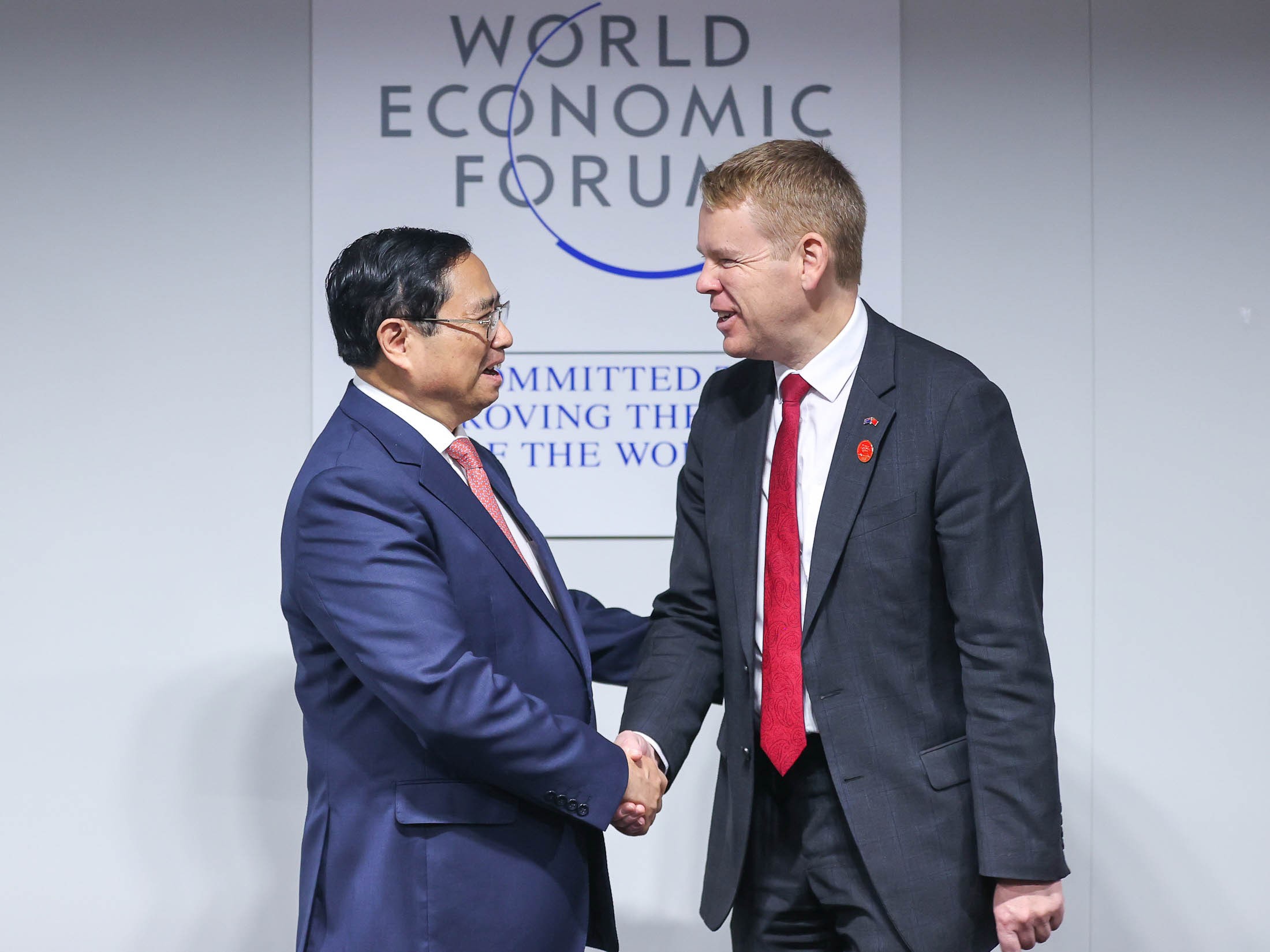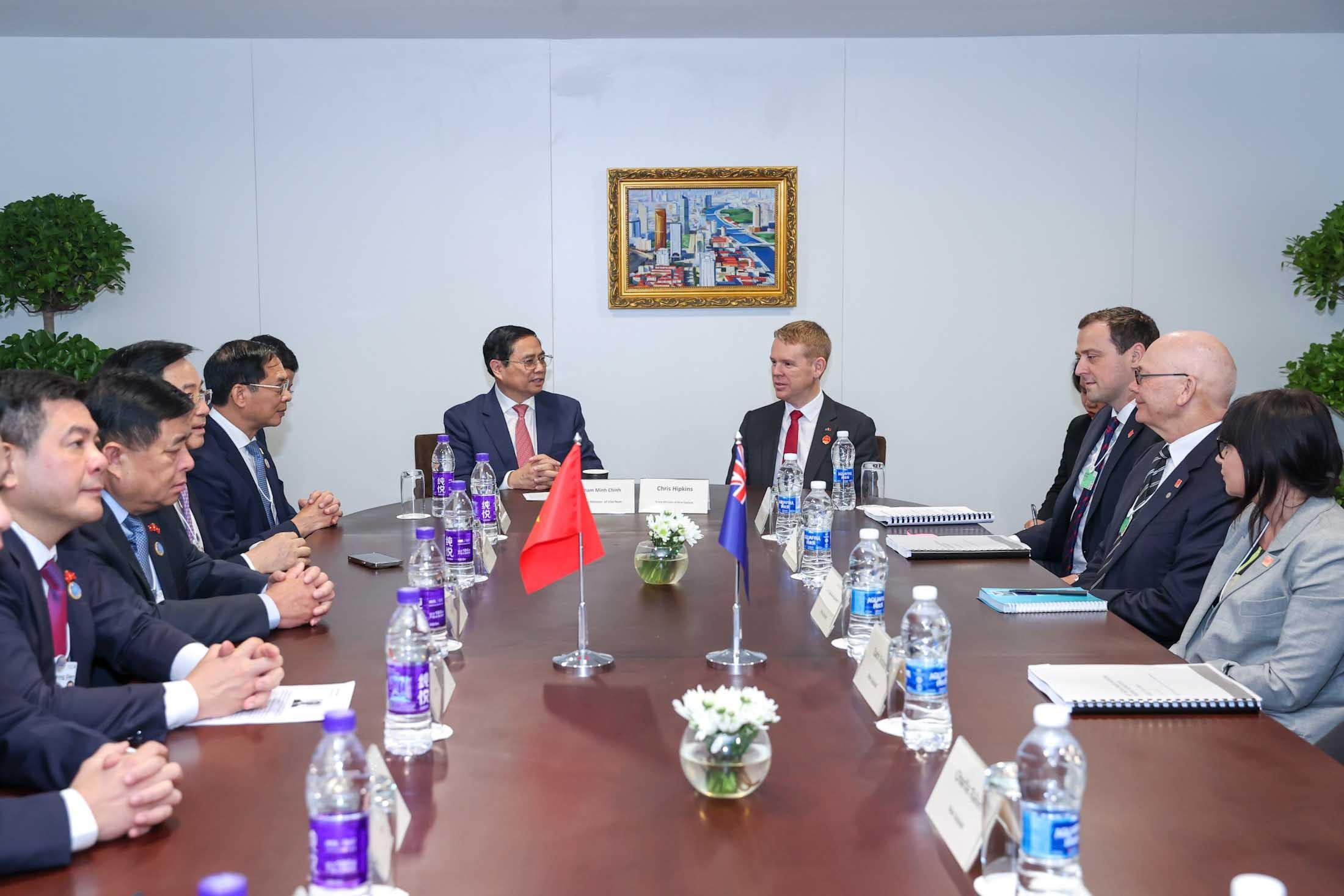
Prime Minister Pham Minh Chinh meets Prime Minister of New Zealand Chris Hipkins
Latest
 |
| Prime Minister Pham Minh Chinh and Prime Minister of New Zealand Chris Hipkins. (Photo: WVR/Nguyen Hong) |
The two Prime Ministers acknowledged with pleasure that the bilateral relations between Vietnam and New Zealand have continually flourished in recent times.
They noted that the two countries have maintained regular exchanges of high-level delegations, and two-way trade continues to grow rapidly, hitting nearly 1.3 billion USD in 2022 despite difficulties and challenges.
There is ample room for the two nations to further step up economic and trade cooperation, the Prime Ministers said, suggesting relevant ministries and sectors intensify promotion activities and further open up markets for each other's goods, towards lifting the bilateral trade to 2 billion USD by 2024.
The Vietnamese Government will create favourable conditions for businesses of New Zealand to invest in Vietnam, particularly in areas where New Zealand has strengths and Vietnam has demand, such as education - training, processing and manufacturing technologies, agriculture, forestry, aquaculture, and construction, Prime Minister Chinh stated.
He also called for New Zealand’s support for Vietnamese businesses to operate in the country.
 |
| Prime Minister Pham Minh Chinh and Prime Minister of New Zealand Chris Hipkins at the meeting. (Photo: WVR/Nguyen Hong) |
For his part, Prime Minister Hipkins congratulated Vietnam on its achievements in socio-economic recovery and development, expressing agreement with proposals put forward by his Vietnamese counterpart, particularly in promoting economic and trade cooperation, and coordination in multilateral forums.
He emphasized the support of New Zealand for strengthening the central role of the Association of Southeast Asian Nations (ASEAN) in handling regional issues.
Both sides emphasized the importance of maintaining and promoting peace, security, stability, safety, and freedom of navigation and overflight in the East Sea; and promoting dialogue, enhancing trust, and settling disputes through peaceful measures in accordance with international law, including the United Nations Convention on the Law of the Sea (1982 UNCLOS).













